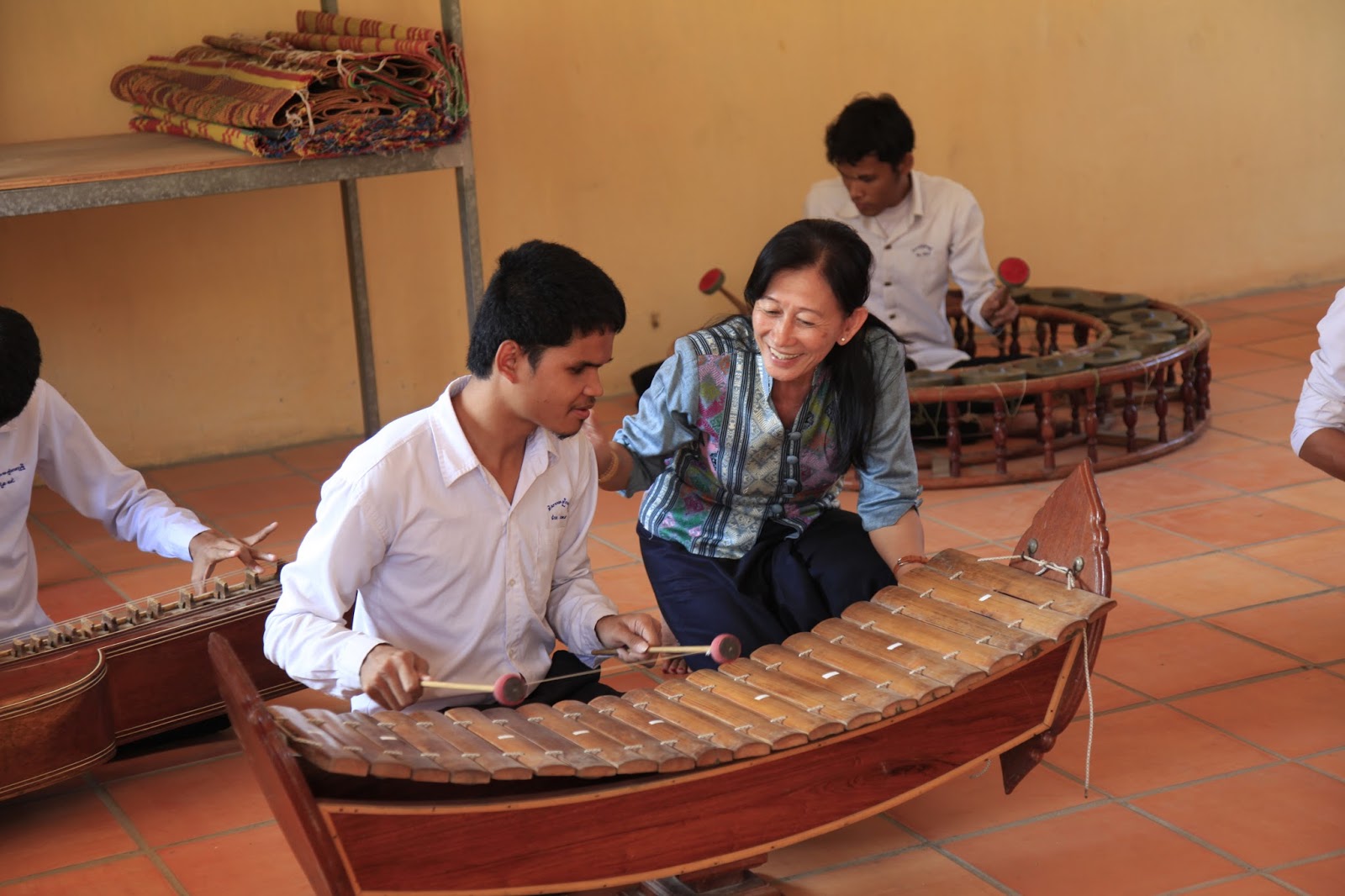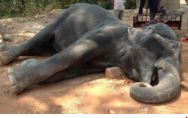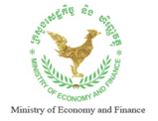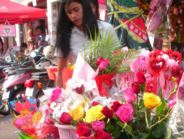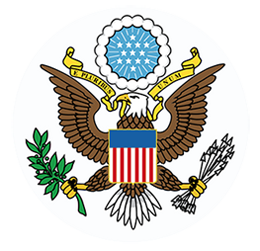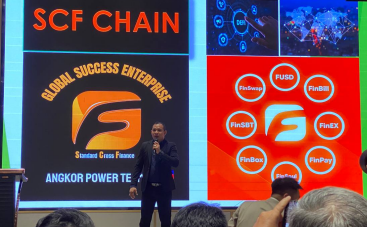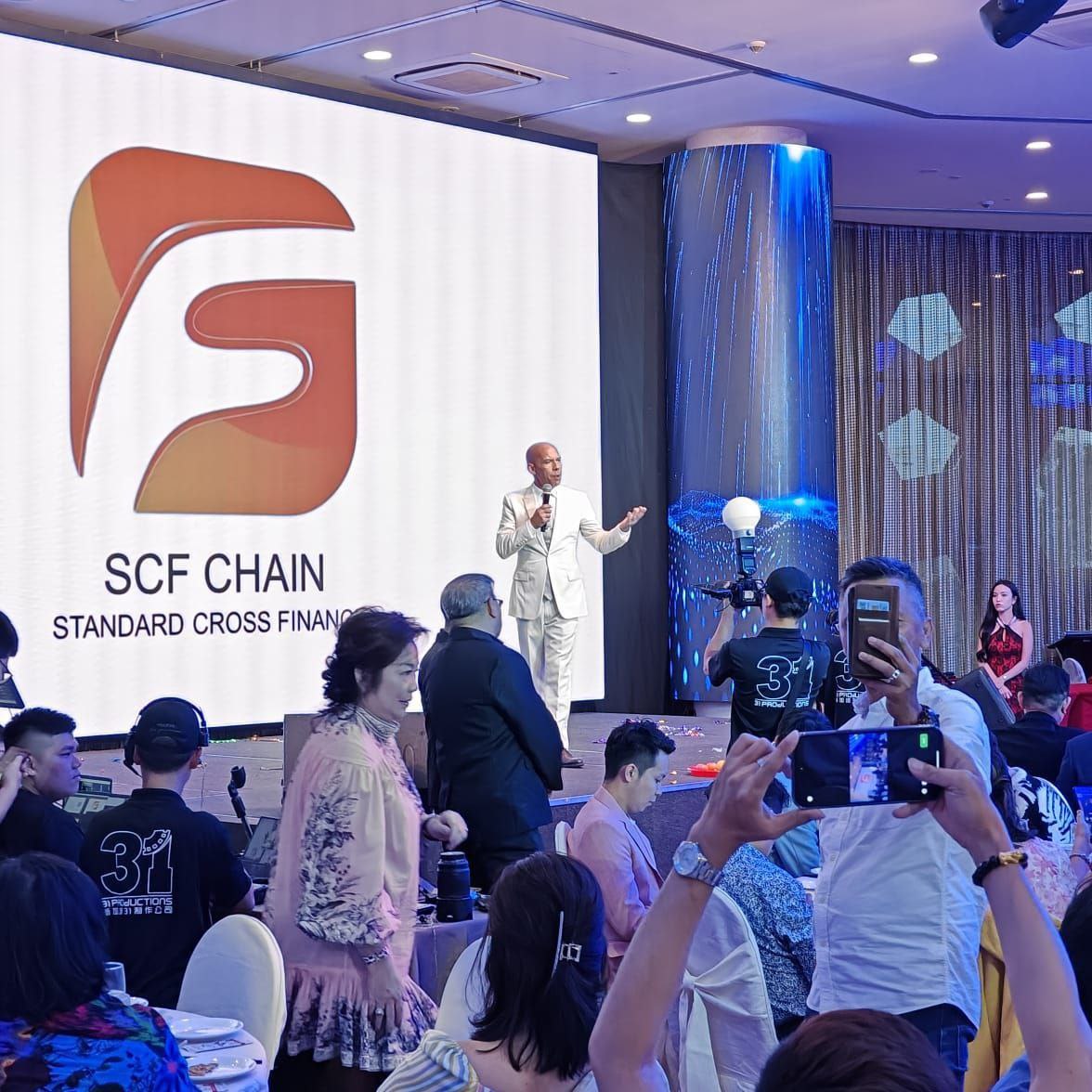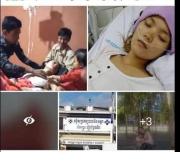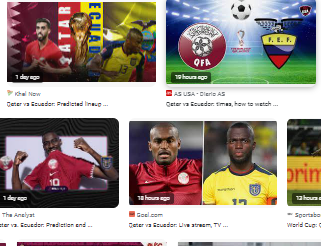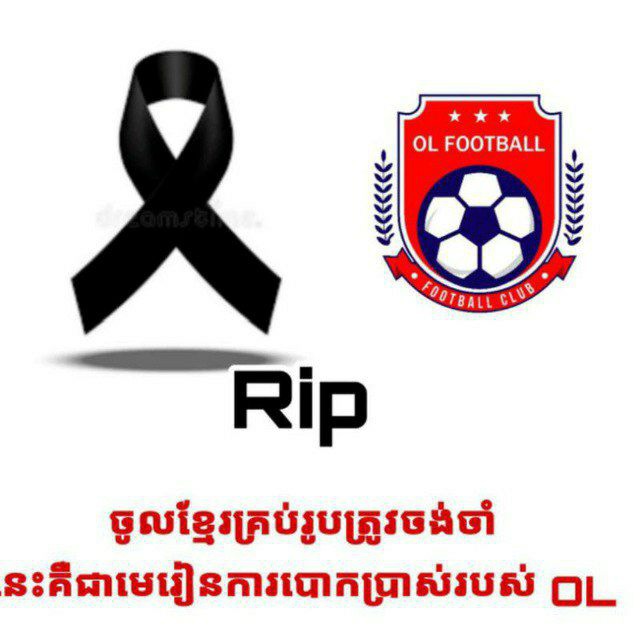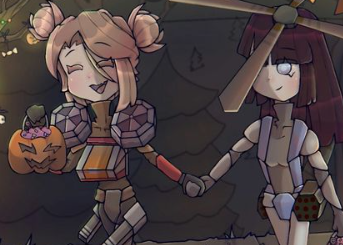Phnom Penh (UNICEF Cambodia), March 8 - Determined. Resilient. Fearless. These are only a few of the qualities to describe Ms. Phalla Neang. School director and country-wide coordinator for the ‘Education for Blind’ programme at local non-governmental organization Krousar Thmey.
In celebration of International Women’s day, we are highlighting the work of inspirational women in Cambodia such as Ms. Neang. With a professional career that expands for over 20 years, she is a pioneer in the field of education for children with disabilities and a powerful advocate and ally to many of her students.
Her involvement with education has a tragic beginning. Due to the Khmer Rouge regime, Ms. Neang and her family were evacuated and forced to leave everything behind and from that time she never saw her parents again. She arrived in Thailand when she was 23 years old. She found herself alone and scared in an unknown country. But she was determined to continue her schooling and she did so while working part time.
In celebration of International Women’s day, we are highlighting the work of inspirational women in Cambodia such as Ms. Neang. With a professional career that expands for over 20 years, she is a pioneer in the field of education for children with disabilities and a powerful advocate and ally to many of her students.
Her involvement with education has a tragic beginning. Due to the Khmer Rouge regime, Ms. Neang and her family were evacuated and forced to leave everything behind and from that time she never saw her parents again. She arrived in Thailand when she was 23 years old. She found herself alone and scared in an unknown country. But she was determined to continue her schooling and she did so while working part time.
Her passion for education led her to work at a refugee camp run by
the United Nations in Thailand. After she finished with her schooling
she became a teacher, and later director, of the only school for
children with disabilities who were staying at the camp. She observed
many of the children with disabilities in the country didn’t have the
support they needed and were left unnoticed without proper help. She was
determined to change that.
Ms. Neang believed that despite any disabilities, all children have the right to an education. She didn’t see disability, she saw talent. “I was very impressed by the ability of blind students to understand, learn and move around without needing any help”. After working for many years at the Thai refugee camp she decided it was time to go back to her beloved country and help children with disabilities in Cambodia.
Once she arrived in Phnom Penh in 1991, she connected with Mr Benoît Duchateau-Arminjon founder of the organization Krousar Thmey. At that time, the organization was working in partnership with the government, to create the first school for blind people in Cambodia. In 1993, Ms. Neang became the first braille teacher in the history of the country.
She explains that at the time, no one knew how to work with children with disabilities in the country. They were often marginalized and sometimes abused by their families. She shares that many blind children were only allowed to leave their houses to beg on the streets. Once they returned home they were locked in a room for days. People believed that having a disability meant you were punished for sinning in a past life or were unable to learn as easily as others. Although it was difficult to change this perception, Ms. Neang worked tirelessly to connect with the community and to ask parents to allow their children come to school.
“In the morning, I would get the driver and go visit their houses. Sometimes they would close the door on me, sometimes they wouldn’t even answer because they knew who I was. But I never stopped” says Ms. Neang.
Fast forward 20 years and we’re sitting in one of the five school locations of Krousar Thmey school for deaf or blind children. In the past few decades, the organization has expanded exponentially and impacted the lives of many children with disabilities. Ms. Neang smiles and shares that she is a little bit of a multitasker at the school. “I’m a teacher, a writer, cleaner, organizer, I do a bit of everything”. I joke and tell her she is like Superwoman and ask her where she gets her strength. She smiles and replies “All I know is that when I close my eyes, I see blind children with a bright future, having the same opportunities and access to education as everyone else”.
As we walk around campus, we stop in each classroom and I’m welcomed with smiles from all the children and teachers. It is easy to see how happy and safe these children feel. They learn braille in Khmer, music, sign language, computer science just to name a few of their subjects. Some of the older students attend Krousar Thmey part time and attend public school in the afternoon. If they need help with their homework or if they’re having difficulties with a particular subject in school, they can come back to Krousar Thmey and a teacher can provide assistance.
In order to provide her students an equal education, Ms. Neang set it upon herself to translate books in Khmer into braille. It’s imperative for her that her students learn the same subjects children in public schools learn. Ms. Neang has a translation team dedicated to translating texts from Khmer into braille. They translate over 4000 books a year providing blind children with a chance to learn every subject without any difficulties. They even have an in-house printer which is one of only two printers in the entire country.
As I go through my notes from my interview with Ms. Neang, I noticed a theme that is present throughout our entire conversation, which is equality. Ms. Neang’s motivation and strength comes from ensuring children in Cambodia have an equal chance to an education. “When I go home, I do the same I do at school. I treat my two children the same way I treat my students. I love them and push them to work hard.”
Ms. Neang’s message to young Cambodian women is one of empowerment: she encourages them to acknowledge their strengths. As a nation, she shares, we need to work together to help create opportunities for our children.
“Children have the right to an education” it’s that simple, she adds, “do not be afraid of disabilities, let’s give our children the support and opportunities they need”.
Ms. Neang believed that despite any disabilities, all children have the right to an education. She didn’t see disability, she saw talent. “I was very impressed by the ability of blind students to understand, learn and move around without needing any help”. After working for many years at the Thai refugee camp she decided it was time to go back to her beloved country and help children with disabilities in Cambodia.
Once she arrived in Phnom Penh in 1991, she connected with Mr Benoît Duchateau-Arminjon founder of the organization Krousar Thmey. At that time, the organization was working in partnership with the government, to create the first school for blind people in Cambodia. In 1993, Ms. Neang became the first braille teacher in the history of the country.
She explains that at the time, no one knew how to work with children with disabilities in the country. They were often marginalized and sometimes abused by their families. She shares that many blind children were only allowed to leave their houses to beg on the streets. Once they returned home they were locked in a room for days. People believed that having a disability meant you were punished for sinning in a past life or were unable to learn as easily as others. Although it was difficult to change this perception, Ms. Neang worked tirelessly to connect with the community and to ask parents to allow their children come to school.
“In the morning, I would get the driver and go visit their houses. Sometimes they would close the door on me, sometimes they wouldn’t even answer because they knew who I was. But I never stopped” says Ms. Neang.
Fast forward 20 years and we’re sitting in one of the five school locations of Krousar Thmey school for deaf or blind children. In the past few decades, the organization has expanded exponentially and impacted the lives of many children with disabilities. Ms. Neang smiles and shares that she is a little bit of a multitasker at the school. “I’m a teacher, a writer, cleaner, organizer, I do a bit of everything”. I joke and tell her she is like Superwoman and ask her where she gets her strength. She smiles and replies “All I know is that when I close my eyes, I see blind children with a bright future, having the same opportunities and access to education as everyone else”.
As we walk around campus, we stop in each classroom and I’m welcomed with smiles from all the children and teachers. It is easy to see how happy and safe these children feel. They learn braille in Khmer, music, sign language, computer science just to name a few of their subjects. Some of the older students attend Krousar Thmey part time and attend public school in the afternoon. If they need help with their homework or if they’re having difficulties with a particular subject in school, they can come back to Krousar Thmey and a teacher can provide assistance.
In order to provide her students an equal education, Ms. Neang set it upon herself to translate books in Khmer into braille. It’s imperative for her that her students learn the same subjects children in public schools learn. Ms. Neang has a translation team dedicated to translating texts from Khmer into braille. They translate over 4000 books a year providing blind children with a chance to learn every subject without any difficulties. They even have an in-house printer which is one of only two printers in the entire country.
As I go through my notes from my interview with Ms. Neang, I noticed a theme that is present throughout our entire conversation, which is equality. Ms. Neang’s motivation and strength comes from ensuring children in Cambodia have an equal chance to an education. “When I go home, I do the same I do at school. I treat my two children the same way I treat my students. I love them and push them to work hard.”
Ms. Neang’s message to young Cambodian women is one of empowerment: she encourages them to acknowledge their strengths. As a nation, she shares, we need to work together to help create opportunities for our children.
“Children have the right to an education” it’s that simple, she adds, “do not be afraid of disabilities, let’s give our children the support and opportunities they need”.
(all readers's comments can help improve the information, as well as better social)


